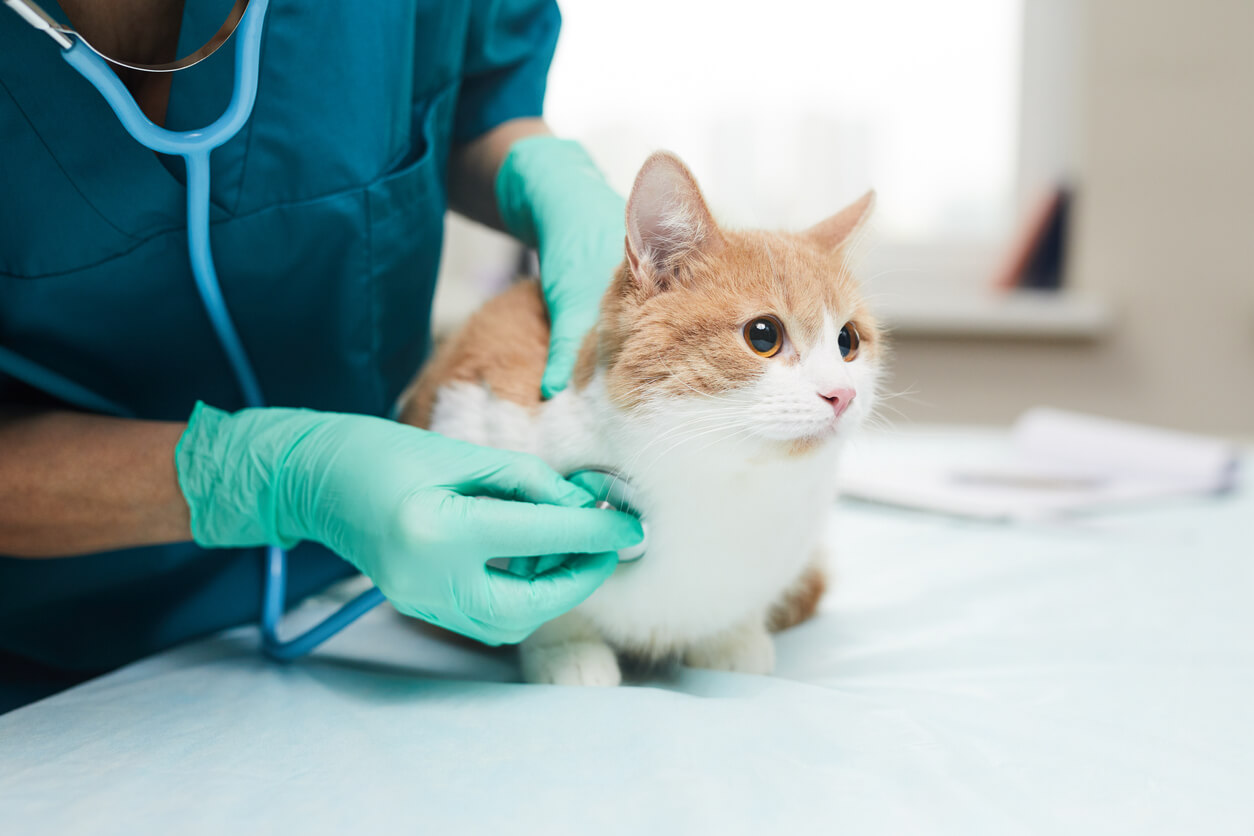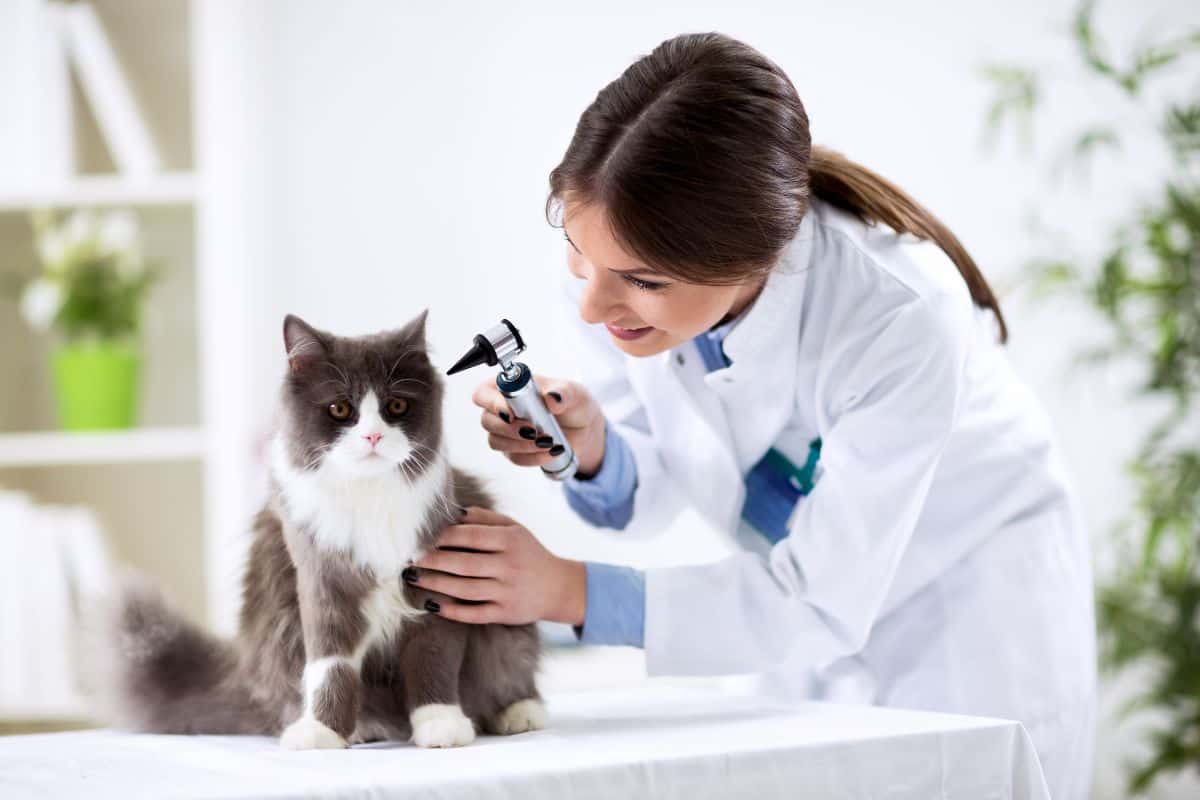How an Emergency Vet Can Conserve Your Pet's Life in Vital Situations
How an Emergency Vet Can Conserve Your Pet's Life in Vital Situations
Blog Article
Inoculation Standards From Your Relied On Vet
Inoculation standards supplied by your relied on vet play an important function in securing your pet's health and wellness and wellness. Additionally, dealing with usual mistaken beliefs surrounding vaccinations can further boost pet proprietors' confidence in these precautionary measures.

Importance of Vaccinations
Inoculations play a pivotal role in guarding family pets against a series of avoidable conditions. By promoting the body immune system to identify and combat particular virus, vaccines substantially minimize the incidence of contagious illness that can influence an animal's health and longevity. Not only do inoculations safeguard private animals, yet they likewise add to herd immunity, thereby reducing the overall prevalence of conditions in the pet dog population.
Timely inoculations help to reduce the spread of diseases such as rabies, parvovirus, and distemper, which can have serious effects for both human beings and family pets. Inoculations are usually a need for boarding facilities, brushing solutions, and canine parks, making them important for those who wish to socialize their family pets.

Core Vaccinations for Family Pets
While the certain inoculation requirements of pets can differ based on individual factors, core vaccinations are generally advised to secure against one of the most serious and common illness (Vet Enterprise). Core injections are those regarded essential for all animals, no matter their lifestyle or geographical location, as they safeguard versus potentially fatal and very infectious diseases
For pet dogs, the core vaccinations consist of those for canine distemper, parvovirus, adenovirus (hepatitis), and rabies. Canine distemper is a viral illness that impacts the breathing, gastrointestinal, and nerve systems. Parvovirus is understood for creating extreme stomach health problem, especially in puppies. Adenovirus can lead to liver condition, while rabies is a zoonotic condition that positions a risk to both pet dogs and humans.
In cats, core vaccinations incorporate feline panleukopenia, feline calicivirus, feline herpesvirus (rhinotracheitis), and rabies. Feline panleukopenia is a highly infectious viral condition that influences the immune system and intestinal tracts. Calicivirus and herpesvirus are major factors to top respiratory infections in cats, while rabies stays an important problem for public health.
Seek advice from with your vet to ensure your pets receive their core inoculations on time.
Non-Core Vaccines Explained
Non-core vaccines are customized to attend to particular risks related to a pet dog's environment, lifestyle, and direct exposure to certain diseases. Unlike core vaccines, which are generally advised for all family pets, non-core injections are thought about based upon specific situations. These vaccines are especially crucial for pets that might run into special pathogens because of their geographical place, travel behaviors, or activities.
Instances of non-core injections include those for Bordetella bronchiseptica, which is connected to kennel coughing, site link and Lyme disease, created by ticks. Pets that frequently communicate with other animals, such as those in boarding facilities, canine parks, or brushing environments, might take advantage of Bordetella inoculation. Similarly, if you stay in an area where Lyme illness prevails, immunizing against this illness can be a prudent selection for outdoor-loving pets.
Various other non-core vaccinations may consist of those for leptospirosis, canine flu, and feline leukemia, relying on the certain risk factors present. It is vital to have a complete conversation with your veterinarian about your pet dog's lifestyle and the prospective need for these vaccinations, guaranteeing a tailored inoculation technique that best safeguards your furry close friend.
Inoculation Set Up Summary

As pets develop, it is essential to stick to the recommended booster vaccinations. Pet Health Checkup. For grown-up animals, core vaccinations are generally offered each to three years, depending on the certain vaccine and regional laws. Non-core vaccinations might be advised based upon way of living variables and local illness occurrence, necessitating a customized method
Normal veterinary exams are essential for upgrading vaccination routines. Your vet can supply assistance on the most suitable immunizations for your pet dog, factoring in age, health condition, and environmental dangers. By remaining proactive and notified, pet owners can ensure their furry companions get efficient click for source and prompt vaccinations, therefore protecting their health and wellness throughout their lives.
Usual Misconceptions About Vaccines
Misconceptions regarding pet dog inoculations can bring about complication and unwillingness among family pet proprietors regarding the booster shot procedure. One prevalent myth check out here is that vaccinations are unneeded for interior family pets. While it's real that indoor animals face reduced threats, they are not completely immune to illness, as pathogens can be introduced via different methods, consisting of human garments and various other family pets.
Another misconception is that vaccinations can create the diseases they aim to avoid. In truth, most vaccines include suspended or attenuated microorganisms, which can not cause condition in healthy and balanced pets. Some animal owners additionally think that their pets should not be vaccinated if they are already healthy and balanced; however, inoculations are a proactive procedure that assists stop the start of ailment.
Additionally, many pet proprietors are afraid that vaccinations will lead to lasting wellness problems. The benefits of vaccination-- shielding animals from possibly life-threatening illness-- far outweigh the risks.
Final Thought
In recap, adherence to inoculation guidelines is crucial for making sure the health and durability of animals. Resolving usual myths surrounding inoculations additionally reinforces the value of notified decision-making in pet dog treatment.
Not just do inoculations protect private animals, however they additionally contribute to herd immunity, consequently minimizing the total frequency of illness in the animal population.
Misconceptions about pet vaccinations can lead to complication and hesitation among family pet proprietors relating to the booster shot process. While it's real that interior animals deal with lower risks, they are not totally immune to illness, as virus can be introduced through numerous means, consisting of human clothes and other family pets.
Some animal owners additionally think that their pet dogs should not be immunized if they are currently healthy and balanced; however, inoculations are an aggressive procedure that aids stop the beginning of ailment.
The advantages of vaccination-- shielding family pets from potentially dangerous illness-- much surpass the dangers.
Report this page